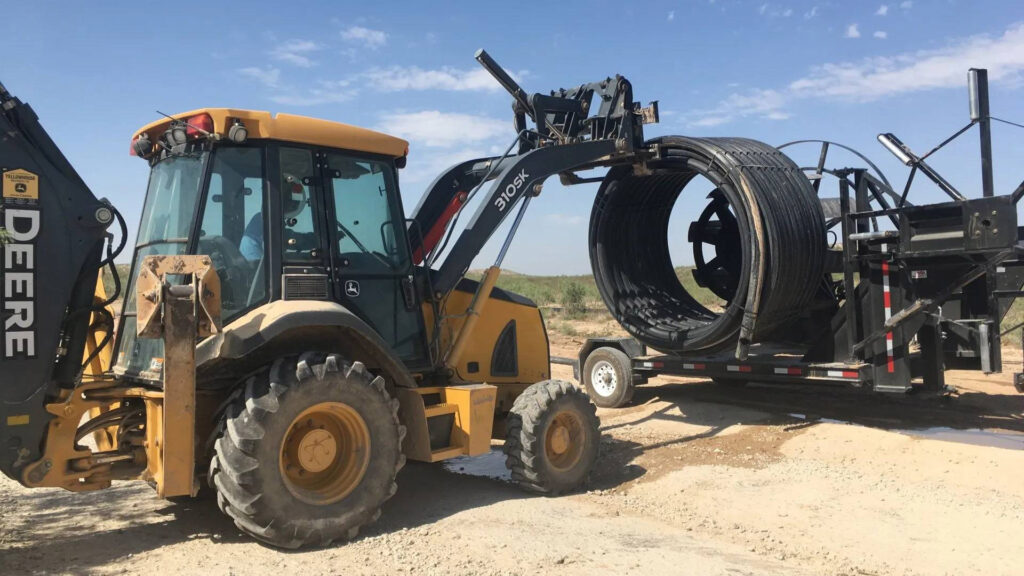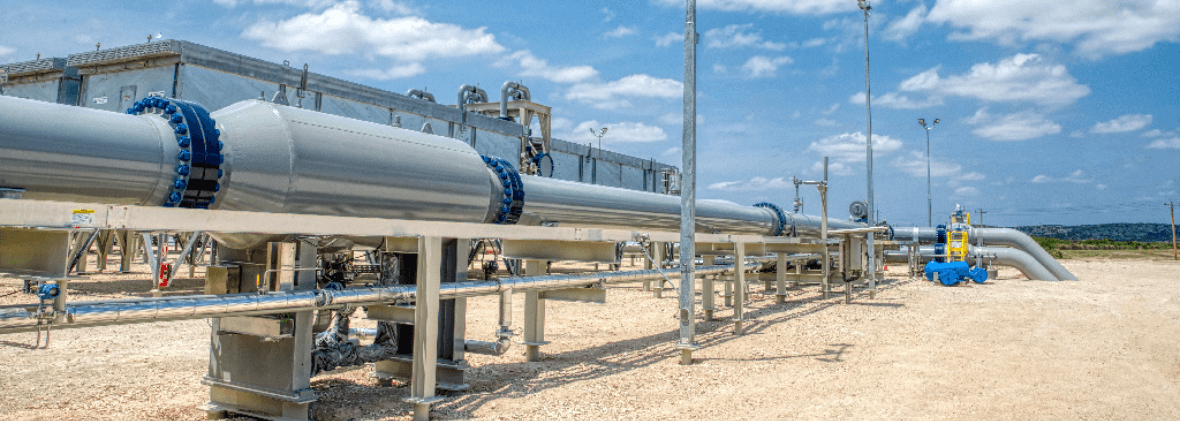How Superior Oilfield Rentals oilfield boosts productivity on-site
Wiki Article
A Comprehensive Guide to the Different Sorts Of Oil Field Equipment and Pipeline Equipment Available
The oil and gas sector depends greatly on specialized equipment for effective extraction and transport. Numerous kinds of equipment, from piercing rigs to storage space tanks, play important duties in this complicated procedure. Each item of tools offers unique functions that add to overall operational success. Comprehending these elements is crucial for any individual entailed in the field. As the industry progresses, so as well do the technologies that support it. What developments are on the perspective?
Drilling Rigs: The Foundation of Oil Exploration
Drilling rigs function as the essential machinery in the domain name of oil exploration, making it possible for firms to access hydrocarbon reserves hidden deep under the Earth's surface. These rigs can be found in various types, including land rigs, offshore rigs, and mobile devices, each created to operate in particular environments. Outfitted with sophisticated technology, drilling rigs can pass through geological developments with accuracy, making certain reliable source extraction. The structural stability and functional abilities of these rigs are important, as they must hold up against severe problems and considerable pressures. Additionally, the option of an exploration rig influences the overall job expense and timeline, making it a vital consideration for oil business looking for to optimize their exploration efforts and optimize productivity in their operations.Pumps: Crucial for Liquid Motion
In the oil removal procedure, the function of pumps is considerable, assisting in the activity of liquids throughout numerous phases of manufacturing. Pumps are essential for delivering petroleum, water, and other liquids from underground reservoirs to the surface area and after that via pipes to refineries. They can be found in various types, consisting of centrifugal, favorable variation, and completely submersible pumps, each offering particular purposes based on the liquid attributes and functional requirements. Centrifugal pumps are typically made use of for their performance in high-flow applications, while favorable displacement pumps master managing thick fluids. The selection of pump impacts general effectiveness, functional safety, and maintenance prices. Correct choice and maintenance of pumps are essential for enhancing production and minimizing downtime in oil area procedures.Valves: Managing Flow and Pressure

Shutoffs play an important function in taking care of the flow and pressure of liquids within oil areas and pipes. Various sorts of shutoffs offer distinctive applications, each made to meet specific functions basic for reliable operation - Superior Rentals reviews. Understanding the attributes and uses these shutoffs is crucial for optimizing system efficiency and safety
Kinds of Valves
Vital components in oil area procedures, shutoffs play an essential duty in regulating the circulation and pressure of liquids within pipes and tools. Various kinds of shutoffs are made use of to fulfill the varied demands of oil and gas manufacturing. Common types include gateway shutoffs, which supply a straight-line circulation and marginal stress decrease; globe valves, known for their strangling capacities; and round shutoffs, identified for their fast on/off control. Furthermore, check valves avoid backflow, while butterfly shutoffs provide a lightweight solution for regulating flow. Each valve type is designed with specific products and arrangements to hold up against the rough problems usually located in oil fields, making sure dependability and effectiveness in operations. Understanding these kinds is essential for efficient system management.Valve Applications and Features
While different kinds of valves offer distinct objectives, their primary applications rotate around controlling circulation and pressure within oil and gas systems. Valves such as entrance, world, and ball shutoffs control fluid movement, making certain peak performance and safety and security. Gateway shutoffs are frequently utilized for on/off control, providing very little flow resistance. Globe shutoffs, on the various other hand, deal exact flow guideline, making them suitable for strangling applications. Ball shutoffs are preferred for their quick procedure and tight securing capabilities. Additionally, pressure relief shutoffs are essential for avoiding system overpressure, guarding devices stability. On the whole, the suitable choice and application of valves boost functional efficiency, making certain the trusted transportation of oil and gas with pipelines and processing facilities.Compressors: Enhancing Gas Transportation
Compressors play an important role in the efficient transportation of gas, making sure that it relocates smoothly via pipelines over cross countries. These devices increase the stress of all-natural gas, allowing it to conquer rubbing and altitude modifications within the pipeline system. In addition, compressors assist in the balancing of supply and need, accommodating changes in intake and manufacturing rates. Different kinds of compressors are used in the industry, consisting of centrifugal, reciprocating, and rotary screw compressors, each offering distinct benefits based upon the functional needs. Normal upkeep of these compressors is important to maximize efficiency and minimize downtime, ultimately adding to a dependable gas transportation network. Their vital function emphasizes the relevance of compressors in the total oil and gas framework.Storage Tanks: Safe and Reliable Liquid Monitoring
Reliable transport of gas counts on different support group, among which is the appropriate administration of storage containers. These containers play a crucial function in securely including fluids, making sure that functional performance is preserved while decreasing environmental dangers. Constructed from long lasting materials, they are designed to withstand high pressures and destructive components. Correctly sized and purposefully located, storage space containers assist in the smooth circulation of gas and other liquids, protecting against bottlenecks in supply chains. Normal maintenance and surveillance are important to detect leaks or architectural issues, promoting security and conformity with regulative criteria. Ultimately, the reliable management of storage containers is critical for the total stability and dependability of the oil and gas industry's fluid handling systems.
Pipeline Solutions: Framework for Transportation
Pipeline systems act as the foundation of the oil and gas sector, assisting in the reliable transportation of hydrocarbons over large distances. These systems include navigate to these guys different components, including pipes, valves, pumps, and continue reading this compressors, all meticulously created to guarantee smooth circulation. The materials made use of in pipeline construction, often steel or high-density polyethylene, are selected for toughness and resistance to corrosion. Pipeline networks can span across land and water, attaching manufacturing websites to refineries and circulation. Additionally, advanced innovation allows real-time surveillance of circulation prices and pressure degrees, enhancing operational performance. The strategic placement of these pipes lessens ecological influence while optimizing source access, thereby playing a vital function in meeting energy demands globally.Safety Equipment: Ensuring Worker and Environmental Defense
The procedure of pipeline systems, while important for energy transportation, likewise provides considerable security obstacles for employees and the setting. Safety and security tools plays a substantial duty in minimizing these threats. Individual protective tools (PPE) such as headgears, gloves, and non-slip footwear safeguards employees from physical dangers. Furthermore, gas detection systems keep track of for leaks, guaranteeing that harmful compounds do not posture a hazard to employees or the surrounding ecological community. Emergency shutdown systems are essential for rapidly halting operations throughout a situation, preventing potential catastrophes. Spill containment products, consisting of absorbents and barriers, are fundamental for decreasing ecological impact. On the whole, buying all-inclusive safety equipment is crucial for maintaining used tractors with backhoe for sale near me operational integrity and securing both employees and the atmosphere in the oil and gas sector.
Regularly Asked Inquiries
How Do I Select the Right Oil Field Equipment for My Job?
Selecting the best oil field devices involves assessing job specs, budget constraints, and functional requirements. Take into consideration elements such as devices dependability, compatibility with existing systems, and the distributor's reputation to guarantee peak performance and safety.What Are the Maintenance Demands for Oil Field Equipment?
Maintenance demands for oil field equipment include routine evaluations, lubrication, and timely repair services. Operators must additionally abide by supplier standards, screen performance metrics, and assurance compliance with safety laws to improve longevity and performance.
How Can I Guarantee Conformity With Environmental Laws?
To guarantee compliance with ecological policies, business should conduct regular audits, carry out ideal techniques, spend in training, preserve appropriate documents, and remain upgraded on regulations (Superior Rentals reviews). Cooperation with environmental companies can also boost adherence to lawsWhat Is the Ordinary Lifespan of Pipeline Equipment?
The ordinary lifespan of pipeline equipment typically ranges from 20 to 50 years, relying on aspects such as worldly quality, ecological conditions, and upkeep techniques. Regular examinations can greatly affect long life and functional effectiveness.How Do I Safely Transport Oil Field Equipment to Remote Locations?
Transporting oil area devices to remote areas calls for mindful planning, consisting of route analysis, securing authorizations, making use of ideal lorries, and ensuring safety and security protocols are followed. Proper training and communication among teams are necessary for successful transport.Report this wiki page